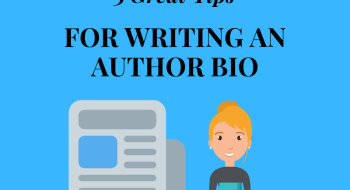20 Expert Tips on How to Secure a Book Deal in 2024

Getting a book deal is a game changer for authors, both those who are getting published for the first time and those who have previously self-published. Anyone writing a book that they would like to sell to a publisher needs to know how to get a book deal, understand that things can get tough, and persist. The book market is a lively and buzzing market, thanks in large part to technology; and if you have a brilliant book to offer and choose the right publishing strategies, then you should be on your way to publishing success.
What Is a Book Deal?
A book deal is a legally binding agreement between an author and a publisher. Its most important features are the number of books that the author is expected to write for publication by the publisher, how much the author is going to earn (i.e., advances, royalties), and whether or not there will be an advance in the first place. Typically, first-time authors get between $3,000 and $5,000, or as high as $50,000, from which 30 percent to 40 percent is taken to cover agent fee (if any) and taxes.
A book deal can also specify whether or not the deal includes an option clause (whether or not your current publisher gets first look at your next book), as well as such basics as word count and delivery dates.
The ideal book deal is, of course, the six-figure one—which is generally reserved for established authors or big names in any field with a much-anticipated story to tell via an autobiography, a memoir, or investigative journalism–type book covering a popular and/or compelling subject.
Advances and royalties
In traditional publishing, a book deal typically involves an advance and royalties.
An advance is a lump-sum amount paid to the author before the book is published; however, it can also be paid in installments, not all of which the author gets prior to publication—for example, 25 percent on signing the deal, 25 percent on delivering a polished (or semi-polished in some cases) manuscript, another 25 percent on publication, and the final 25 percent after one year. Book advances are not affected by book sales: authors keep the money regardless of how well their book sells.
A royalty is a percentage of a book’s sales revenue paid to the author after publication. Hardcovers typically get a royalty of 5 percent to 15 percent of the list price, increasing as sales reach set targets. Paperback royalties could range from 5 percent or 7.5 percent. You will receive royalties only after earning out your advance—meaning you won’t start earning royalties until the initial sales of your book matches your advance.
How to Get a Book Deal
Securing a great book deal is crucial in the process of getting your book to your intended readers and do one of the best things about being a writer: make an impact on people’s lives
Here are our author success tips on how to get a book deal and turn your publishing dream into reality:
1. Research the market.
Market knowledge will get you off to a great start. Know which topics readers are drawn to and which genres have a robust readership. This should give you an idea of how your book will stack up—information that agents and publishers will need right off the bat when you reach out to them.
Having said that, note that you don’t have to force your book into a certain genre, tropes and all, or force yourself to tackle a popular topic that you’re ultimately not passionate or curious about.
2. Write a book that’s worthy of publication.
Even as you do make choices that will help sell your book, don’t forget that having a distinct voice, a unique perspective, and a compelling story are still a must. Come to think of it, if the trend doesn’t quite suit you, why not start a trend. Right? To do that, dig deep, cast a wide net, shake things up—make your efforts yield something that makes an undeniable impact on readers, whether it’s a weird but ultimately relatable character, a plot twist that’s as profound as it is clever, or a structure that amplifies emotional resonance.
3. Edit, copyedit, proofread.
Don’t underestimate the importance of both self-editing and then having your book line or copyedited and proofread. You won’t want to undermine your great writing and distract readers with poor editing, regardless of extent.
4. Format according to industry standards.
Industry-standard formatting is another aspect of your book that gives it legitimacy, conveys professionalism, and helps guarantee readability. You might want to hire a book layout and formatting professional to help you out on this one.
5. Get feedback.
Beta readers can help steer you in the right direction when revising your manuscript. They can provide objective feedback as well as identify any emotional layers your writing may have unfolded, or may need to unfold. So go ahead and enlist the help of friends, colleagues, the readers in your social circle.
6. Have a top-quality cover design idea ready.
While this may not be final, and may altogether be scrapped at any point of the revision and production stage, it may still help to convey your determination to produce a publication-worthy book. You can enlist a professional designer to flesh out your ideas.
7. Identify the publishers who will be a good fit your book.
Once you have a revised manuscript, it’s time to research publishers. You could aim for the big publishing houses, which most likely will have a dedicated marketing and publicity department, but they will also have many authors to cater to. Or you could focus your search on small, independent presses that specialize in books like yours.
Streamline your search based on the following:
- Published authors/books (list)
- Genres
- Bestsellers
- Number of first-time authors on their list
A major publisher will most certainly have a bestseller list, but you’d be wise to look beyond that and see whether your book would fit in with the books they publish.
A small press, on the other hand, would be more likely to publish a first-time author and/or an experimental work; however, they may not be fully equipped to create and carry out effective marketing campaigns. A small press’s shorter list also means a limited budget for each publication.
Bottom line: Prioritize reaching out to the publishers that will be the best fit for you. Ultimately, your choices will be narrowed down to which publishers are willing to offer you a book deal, so from those final options for a guaranteed book deal, try to balance the monetary aspect with compatibility in terms of creative choices and vision.
8. Build your author platform.
Having a platform is essential in modern publishing. It signals the availability of an audience, trust, and engagement, which means marketability and guaranteed sales. A platform vastly improves your chances of landing a book deal as it quiets down misgivings on the part of editors. Plus, it helps determine the amount of advance you get.
You have plenty of options when it comes to building your author platform:
- Author website
- Social media (Two or three accounts on social media that best allows you to connect with your target audience)
- Guest posts for other blogs in your niche
- Speaking engagements
- Writing articles for trade publications and/or smaller magazines
There has never been a better time for authors to make themselves known to their prospective readers and to prospective agents and publishers. Just remember, though, that you don’t have to use all options available to you. Instead, pick the ones that maximize your exposure to the right people as well as allow you to effectively showcase your skills—whether it’s posting Instagram Reels, creating YouTube Shorts or long-form videos, or writing detailed, engaging articles on your area of expertise, which will prominently feature in your book/s.
9. Get an agent.
Having an agent makes a world of difference for authors aiming for a book deal with traditional publishers, especially if they have their eyes set on the Big Five (Hachette Book Group, HarperCollins Publishers, Macmillan Publishers, Penguin Random House, and Simon & Schuster). But don’t just settle for any agent. Look for a true professional—someone who will take the time to know you and understand your writing so they can help you find a publisher that’s best suited for you.
But first, getting an agent requires a query letter (for fiction) or a book proposal (for nonfiction)—one that includes all the pertinent details that will catch the attention of the right agent for you.
10. Write a query letter (for novel-length fiction).
A query letter is a letter designed for authors to introduce themselves and their work to a literary agent, an editor, or a publisher.
When composing your query letter, provide a concise overview of your story, making sure not to miss any of the salient points:
- Provide the name of your protagonist and their current circumstance: Anita, a digital nomad looking for a home.
- Describe the conflict: She can’t stay in one place because she’s trying to physically outrun her guilt over a friend’s death that she couldn’t prevent
- State the stakes: If she doesn’t come to terms with what happened, forgive herself, and come back home, she will end up hurting those who love her.
- Identify the themes and any correlations (e.g., the accuracy of memory, the dark side of loyalty and the power of self-forgiveness and trusting others to forgive).
- Mention any unique or major stylistic choices—e.g., Told in nonlinear narrative and includes journal entries covering the timeline before the tragic event that sends the main character running.
- Pitch your book in a tone that’s consistent with the atmosphere, tone, and rhythm of your prose (e.g., for a psychological thriller, use the same diction, pauses, and punctuation as in the story).
- Identify your target audience.
- Keep it concise. A query letter is an author’s elevator pitch, so don’t waste a single word.
See here for examples.
11. Write a book proposal (for nonfiction).
Consider this if you’re writing nonfiction: For a majority of nonfiction authors, self-publishing, rather than traditional publishing, may be the better option. This is because the impact of the internet on the book market (i.e., the decline of brick-and-mortar bookstores as a people’s main access to books, thanks to Amazon and social media, among others) has made publishers even more conservative when it comes to taking on first-time authors. This means that if you are set on getting a book deal, then your book has to have a large audience waiting to purchase it.
If this is the case for you, then take note of the items that should be included in your book proposal to agents:
- An overview of your book’s main idea
- All the compelling reasons why people will buy it (or a compelling argument for who will buy it—target audience)
- Author bio—highlighting all the compelling reasons why you’re qualified to write your book
- A comprehensive list of competitive titles (predecessors and competitors) to justify that there is a market for your book, including sales figures
- A marketing plan detailing both sound and creative sales strategies
- An outline of the full book with brief description of each chapter
- A sample chapter
- Your writing timeline
See here for a sample.
You can start your search for an agent here.
12. Enlist a professional to help you polish your query letters/book proposals.
It’s only logical to pull out all the stops to have flawless and compelling query letter/book proposal after you’ve done all the hard work to ensure you have a publication-ready manuscript. If not a professional, you can ask someone who is familiar enough with this type of writing to be able to catch any issues. Needless to say, don’t skip the proofreading.
13. Be strategic when sending out query letters/book proposals to agents.
Strategize when sending out your query letter/book proposal. Send them out in batches to give the agents who are your best match a head start and enough time to reply to you. Try sending out six to eight letters/proposals at a time—say, every other week. Doing this also allows you to perform the necessary research to personalize each letter/proposal.
14. Give agents ample time to respond.
Refrain from getting unnecessarily persistent. Daily emails demanding a reply are an absolute no-no. Instead, wait four to six weeks, or within their specified time frame (this will be indicated in their website) before sending out a polite reminder.
15. Accept rejections as part of the process and embrace constructive feedback.
Rejections are to be expected in any author’s quest for an agent and a book deal, so be prepared to respond in a positive, proactive manner. A rejection that comes with constructive feedback is still a good thing, certainly better than a standard rejection letter. Often, feedback means the agent saw merit in your work despite the issues that ultimately made them decide not to work with you. Take their feedback seriously and make the changes that you agree with before sending out your next batch of letters/proposals and manuscript excerpt.
16. Reassess things if you don’t get any manuscript requests.
If no agent has asked for a copy of your manuscript, reevaluate your query letter/book proposal to see what might not be working. Enlist the help of a professional to ensure the issue is addressed effectively.
On the other hand, if you’ve been sending out copies of your manuscript per request but don’t hear from the agents or you get rejection after rejection, review your book to see where improvements can be made. This may involve working with a professional editor (if you haven’t done that yet on previous rounds of revision) or getting your editor back on board to help you with the latest revision. Or you can work with a different editor.
17. Work with your agent to polish and send out your query letter/book proposal and manuscript to publishers.
With an agent on board, be prepared for your manuscript to undergo yet another round of evaluation, most likely to be followed by another round or two of revisions, be it minor or major. This additional work is part of why you got an agent in the first place, so get to work knowing that you’re increasing your chances of finally getting that book deal.
18. Consider small presses if your work is a poetry collection.
If you want to publish a collection of your poems, it helps if some of the poems included have been previously published (provided that you acknowledge the previous publication), as these help to validate your status as a poet/author. The previous tips apply here, especially revisions, professional editing, and having a platform to guarantee that there are readers who will buy your work.
In addition, small presses may be the way to go, since traditional publishing houses are unlikely to publish a poetry collection by a first-time author/unknown poet. If not, then self-publish.
19. Look beyond the money when you get two or more book deals.
When you finally get a book deal, or two or more offers, consider them as a whole rather than get distracted by the money. Other equally important, if not slightly more important, aspects to consider are the publisher’s enthusiasm to work with you and the effectiveness of their marketing plan. A smaller publisher with a smaller advance but with a track record of dedication in promoting and supporting their authors could be a wiser choice than a bigger publishing house with a bigger offer but with a large number of authors to cater to across multiple genres.
20. Consider self-publishing.
We’ve already broached the subject of self-publishing earlier. Let’s take a closer look: There used to be a time when being self-published gave people the impression that an author’s book is not at par with traditionally published books in terms of all-around quality. That’s not the case these days. Naturally, it’s a given that you’ll write and self-publish a top-quality book, which you will then shop around to agents and traditional publishers. Backed by robust sales statistics and a sustained interest in your book, you can negotiate for a more lucrative deal and top-notch marketing campaigns and promotional efforts.
By self-publishing first, you spare yourself the strain of going the extra mile to make publishers pay attention to you, even with a strong author platform. Instead, you give yourself the time and space to work on marketing your book and creating a wider audience that publishers can’t ignore.
Become a Self-Published Author in 3 Simple Steps
Powered by Experts, Published by You. Reach 40,000+ Retailers & Libraries Around the World. Concierge Service. Tailored Packages. BBB Accredited Business. 100% Royalty Program.


